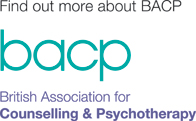Counselling Children and Young People
Children and young people can face a variety of difficult life situations, such as bereavement, parents separating, bullying.
Some struggle with the stress of exams; for some peer pressure raises anxiety and causes continuing distress. In these times children and young people may benefit from a counsellor's help and support.
If you feel worried, perhaps talking to a counsellor could be empowering and enable you to regain control of your situation.
Signs that counselling would be helpful
- Bereavement
- Anxiety
- Bullying
- Cyber bullying
- Suicidal thoughts
- Boarding school issues
- Anger management
- Relationship difficulties
- Self harm
- Suicide ideation
- Exam stress
- Depression
- Self esteem
- Parents separating
- Neurodevelopmental disorders
Brief summary of the counselling process
Children and young people can often struggle to verbalise their feelings. Play, creativity and talking within therapy enables young people to express themselves more easily and explore more deeply their worries. I work closely to help them make sense of what they are showing me through creativity and expression. The relationship formed within counselling enables children and young people to learn more about how they relate to the outside world.
By exploring thoughts and sharing feelings children can then begin to process difficult experiences and reduce levels of emotional distress.
With time the child/young person develops a stronger identity which raises self esteem and confidence. Once learnt this new understanding is integrated into relationships outside of therapy leading towards healthy, happier connections.
How I work:
Initial consultation
I will discuss more about the way I work and you and/or your child can talk about the reasons they are coming and ask questions. Once we have gained enough information we can then decide to schedule further sessions.
Assessment
In the initial few sessions my aim is to get to know your child so I can create a therapy plan to meet needs. I will counsel the initial concern and enquire about family life and past history.
Therapy Plan
At this stage we will agree duration of therapy for short term (4-12 sessions) or long term (6 months or more), taking into account the initial assessment agreement. I work with children and young people individually and if they or I request family members to join us this can take place at any stage of the therapy.
Whilst I am able to offer some support to parents it is very important to remember the child/young person is my client. Throughout the work I will maintain the child/young persons confidentiality unless there are safeguarding concerns then we will advise parents accordingly.
Reviews I offer reviews of the work on a regular basis which gives us the opportunity to explore progress and gain further information. Parents attending a review will be dependent on the child/young persons age and consent. At times another service may be required and I will support this process to ensure the right therapy supports your needs if this becomes necessary
Parent Consultations
During therapy I may need to meet with parents both individually or together depending on the presenting circumstances. This can be requested by the child at any stage during the contractual work if risk, safeguarding or a referral become necessary.
Approaches used within therapy
I use many approaches within my work including solution focussed therapy and creative play. Any intervention used is adapted to fit the child's age, development stage, interest and needs. I work with children individually and can accommodate brief systemic family intervention if requested by the child/young person to be helpful to their process.
Confidentiality
At primary school age parental consent is needed for the child to see a counsellor and there is usually contact between the counsellor and the parent with the child aware.
However in secondary schools parental consent is not required to work with young people where a student is deemed to be Fraser-competent. This offers a higher level of confidentiality to the student.
Fraser-competent guidelines assess whether the young person is able to fully understand and make decisions about their life with the support of relevant professionals,, but not necessarily with the consent or knowledge of the parent if this is the young persons wish.
Safety
Children and young people are made fully aware at the start of therapy what confidentiality means and the limits. If there is a strong concern or disclosure which put the child or others at risk of harm. I have an obligation to involve other relevant services. The child will be advised of my concerns and movements and supported fully throughout the process. Although I hasten to add this is very rare.
Please continue to read further on and if you feel you may benefit from talking I would both welcome and look forward to your contact
'The things that make me different are the things that make me.'
A.A. Milne
BACP Accredited Independent Counsellor/Psychotherapist offering therapy to the residents of Guildford, Farnborough, Fleet and extending to Farnham, Camberley, Bagshot and surrounding areas.

